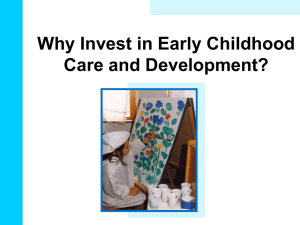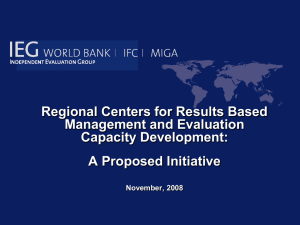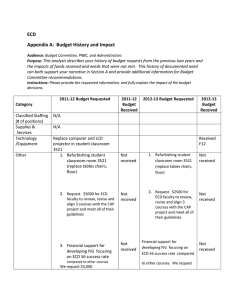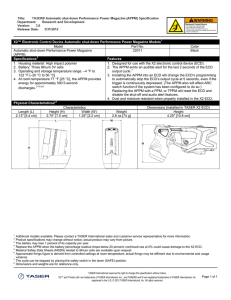ECD Department Program Review Proposal December 2006
advertisement
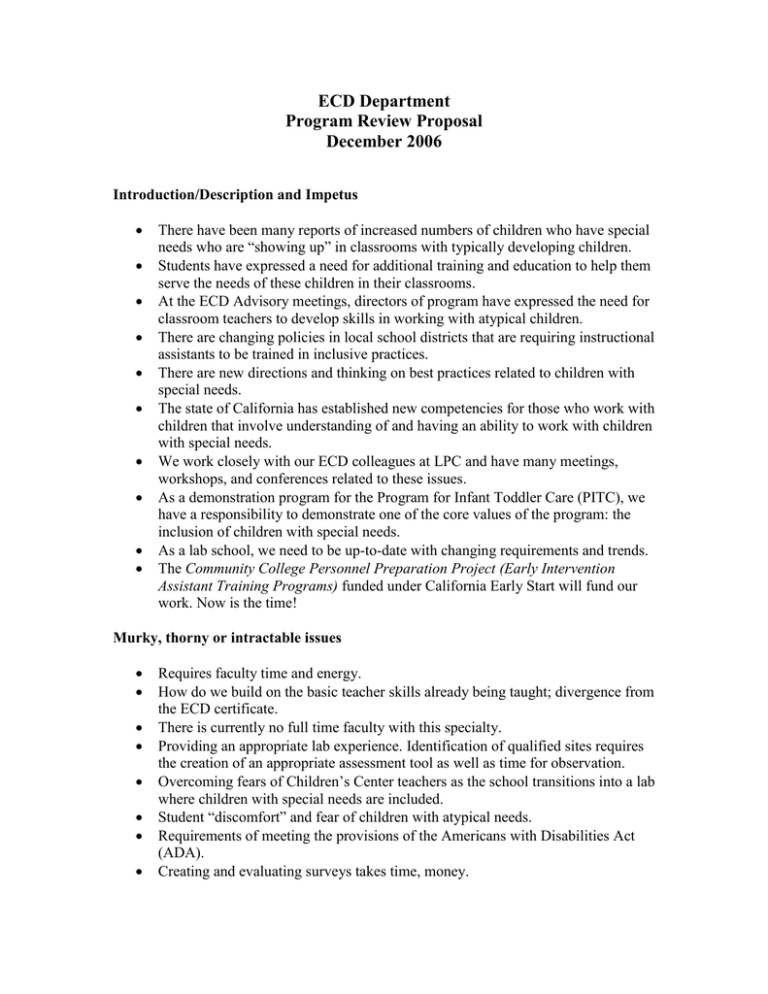
ECD Department Program Review Proposal December 2006 Introduction/Description and Impetus There have been many reports of increased numbers of children who have special needs who are “showing up” in classrooms with typically developing children. Students have expressed a need for additional training and education to help them serve the needs of these children in their classrooms. At the ECD Advisory meetings, directors of program have expressed the need for classroom teachers to develop skills in working with atypical children. There are changing policies in local school districts that are requiring instructional assistants to be trained in inclusive practices. There are new directions and thinking on best practices related to children with special needs. The state of California has established new competencies for those who work with children that involve understanding of and having an ability to work with children with special needs. We work closely with our ECD colleagues at LPC and have many meetings, workshops, and conferences related to these issues. As a demonstration program for the Program for Infant Toddler Care (PITC), we have a responsibility to demonstrate one of the core values of the program: the inclusion of children with special needs. As a lab school, we need to be up-to-date with changing requirements and trends. The Community College Personnel Preparation Project (Early Intervention Assistant Training Programs) funded under California Early Start will fund our work. Now is the time! Murky, thorny or intractable issues Requires faculty time and energy. How do we build on the basic teacher skills already being taught; divergence from the ECD certificate. There is currently no full time faculty with this specialty. Providing an appropriate lab experience. Identification of qualified sites requires the creation of an appropriate assessment tool as well as time for observation. Overcoming fears of Children’s Center teachers as the school transitions into a lab where children with special needs are included. Student “discomfort” and fear of children with atypical needs. Requirements of meeting the provisions of the Americans with Disabilities Act (ADA). Creating and evaluating surveys takes time, money. Requires coordination among teachers, faculty and Children’s Center administrators to join theory and practice. What we need to learn Faculty needs education and training on inclusion and special needs. We need a “lead” who will organize the project and develop an educational plan for faculty. Identify potential staff at every level. Create surveys to analyze the needs of students, directors in the community, staff and faculty. Survey needs of directors in community Integrate inclusion into existing courses as a requirement for state approved certificate. Upgrade Children’s Center facility to meet demand of children with special needs. Goals /Outcomes State competencies infused in existing ECD courses. Development of new courses. Design and approval of new course curriculum that leads to an Intervention Specialist Assistant Certificate. Educated faculty, center staff and administrators on special needs and inclusion. A model lab for inclusion. Measurable increase and improvement in responsiveness to our students and the community as relates to children with special needs.




